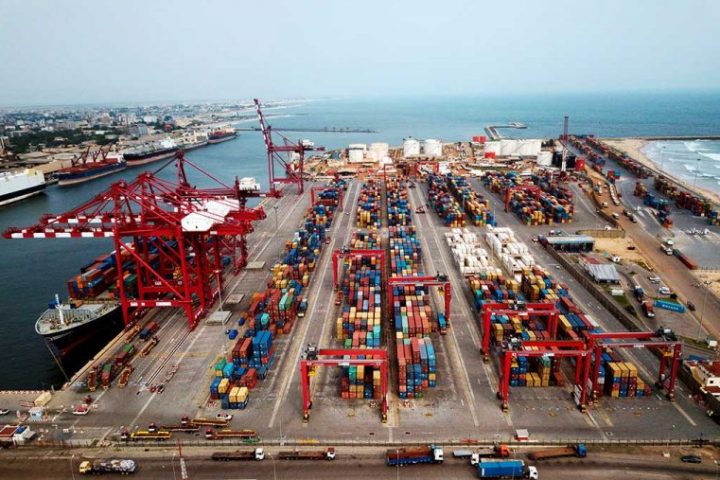African Union Endorses AI Strategy for Development
The African Union (AU) has taken a significant step towards embracing artificial intelligence (AI) as a key driver of development across the continent.
On 9th August, during the 45th Ordinary Session of the AU Executive Council in Accra, Ghana, the AU endorsed the “Continental Artificial Intelligence Strategy.”
Join our WhatsApp ChannelThis initiative aims to integrate AI into both public and private sectors, marking a milestone in the continent’s technological advancement.
Aligning AI with Continental Goals
The new strategy is not just about technology for technology’s sake; it aligns closely with the AU’s Agenda 2063 and the United Nations Sustainable Development Goals (UN SDGs).
According to the AU, this AI strategy is designed to enhance development across various sectors and improve the welfare of the African populace.
“The Continental Artificial Intelligence Strategy is a significant leap forward,” said Moussa Faki Mahamat, Chairperson of the African Union Commission.
“This strategy will enable us to harness AI in ways that align with our long-term goals, including the Agenda 2063 and the UN SDGs.”
Building Infrastructure and Governance
A key aspect of the AI strategy involves establishing new hardware and software infrastructures to support AI and machine learning processes across the continent.
These infrastructures will be essential for managing data effectively and enabling seamless data sharing among member states.
READ ALSO: Africa’s Mounting Debt Crisis And Need For The Global Financial Architecture Reform
Another crucial element is the enhancement of AI governance frameworks. The AU emphasizes that strong governance is necessary to ensure AI’s integration into the priority areas identified in Agenda 2063. These areas include health, education, agriculture, and governance, among others.
“The strategy is comprehensive,” stated Sarah Anyang Agbor, AU Commissioner for Human Resources, Science, and Technology.
“We’re focusing on building the right infrastructure and governance frameworks that will allow AI to flourish and bring tangible benefits to our people.”
Phased Implementation for Long-Term Success
The AI strategy outlines a roadmap for the next five years, divided into two phases. The first phase, from 2025 to 2026, will concentrate on building governance structures and developing national AI plans.
This phase will also identify the needs of the AU and its member states, focusing on capacity building to ensure that AI initiatives are sustainable.
The second phase, spanning from 2027 to 2030, will focus on implementing the strategic priorities identified in the first phase. This will involve the practical application of AI technologies across various sectors, turning the strategy’s goals into reality.
Leading the Way: African Nations with AI Strategies
As the AU rolls out its continental AI strategy, several African nations are already leading the way with their independent AI strategies.
Countries like Algeria, Benin, Egypt, Mauritius, Rwanda, and Senegal have already developed their AI plans, setting an example for the rest of the continent.
Meanwhile, nations such as Kenya, South Africa, and Uganda are piloting AI projects alongside other emerging technologies like blockchain.
Other countries, including Ethiopia, Ghana, Mauritania, Morocco, Nigeria, Tanzania, and Tunisia, are in the process of developing their AI policies and establishing institutions dedicated to fostering AI development.
“The progress we are seeing across the continent is encouraging,” remarked Mahamat. “It shows that African nations are ready to embrace AI and use it as a tool for achieving our development goals.”
The African Union’s endorsement of the Continental Artificial Intelligence Strategy marks a pivotal moment for the continent’s technological future.
By aligning AI initiatives with long-term development goals such as Agenda 2063 and the UN SDGs, the AU is positioning Africa to leverage AI for sustainable growth and improved quality of life.
The strategy’s phased approach ensures that the necessary infrastructure and governance are in place, laying a solid foundation for AI to play a transformative role in Africa’s development.
Emmanuel Ochayi is a journalist. He is a graduate of the University of Lagos, School of first choice and the nations pride. Emmanuel is keen on exploring writing angles in different areas, including Business, climate change, politics, Education, and others.
- Emmanuel Ochayihttps://www.primebusiness.africa/author/ochayi/
- Emmanuel Ochayihttps://www.primebusiness.africa/author/ochayi/
- Emmanuel Ochayihttps://www.primebusiness.africa/author/ochayi/
- Emmanuel Ochayihttps://www.primebusiness.africa/author/ochayi/



















Follow Us